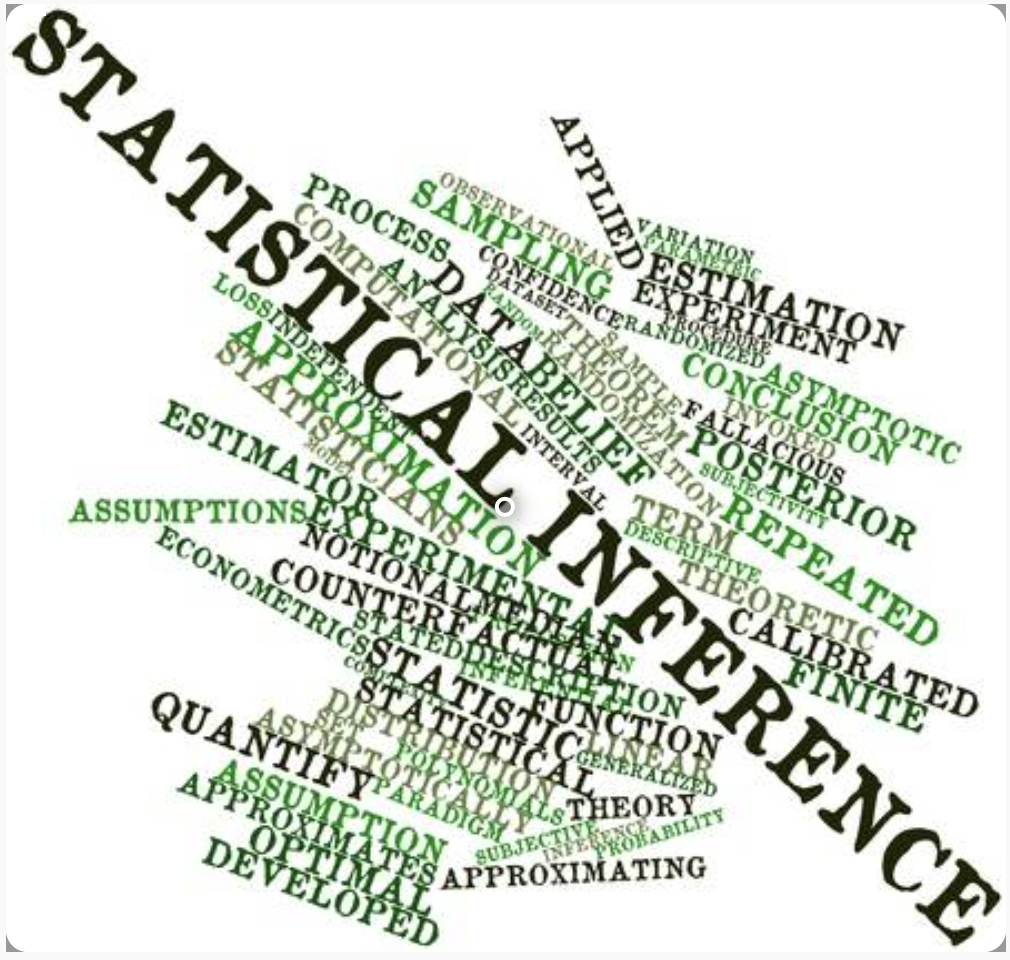Statistical Inference I (7.5 hp)
Ph.D. course for students in Statistics, Mathematical Statistics, and related areas - Spring 2025

Statistical Inference I (7.5 hp) Ph.D. course for students in Statistics, Mathematical Statistics, and related areas - Spring 2025 |

|
Components: 20 Lectures, 5 Tutorials, 10 Homework Assignments
Organization: There will be five sessions as listed in the schedule below.
Textbook:
The lecture will be entirely based on the following textbook
| Session # and location | Date and time | Topic | Supporting material and comments | Assignment: All problems from slides and |
|---|---|---|---|---|
| 1 EC1-353 , online - Zoom | Thursday, Feb 13, 13:15-17:00 | Introduction -- Data, models, parameters, and statistics, Bayesian set-up. | Sections 1.1, 1.2, and 1.3 of the textbook. Lecture 1 Slides and Lecture 2 Slides | 1.1.1, 1.1.3, 1.1.4, 1.1.6, 1.1.9, 1.2.3, 1.2.6, 1.2.11, 1.2.12, 1.2.14, 1.2.15, |
| Friday, Feb 14, 9:15-12:00 | Sufficiency and exponential Families, Maximum likelihood estimation | Sections 1.5 and 1.6 of the textbook, Sections 2.2-4 of the textbook Lecture 3 Slides and Lecture 4 Slides | 1.5.2, 1.5.3, 1.5.7, 1.5.15, 1.5.16, 1.6.2, 1.6.5, 2.2.10, 2.2.11, 2.2.12, 2.2.14, 2.2.15, 2.2.16a, 2.4.1, 2.4.2, 2.4.4, 2.4.5, | |
| Friday, Feb 14, 13:15-16:00 | Discussion and problem solving session | CANCELED ! | ||
| 2 EC1-353 , online - Zoom | Thursday, March 6, 13:15-16:00 | General theory of estimation. Consistency and efficiency. | Section 3.4 and Section 5.2.2, of the textbook Lecture 5 Slides | 3.4.1, 3.4.5ac, 3.4.10, 3.4.11, 3.4.12, |
| Friday, March 7, 9:15-12:00 | Testing hypothesis and the Neyman-Pearson lemma. Uniformly most powerful tests, Confidence regions. | Section 4.1-2, Sections 4.3-5 of the text Lecture 6 Slides Lecture 7 Slides and Lecture 8 Slides | 4.1.1, 4.1.3, 4.1.4, 4.1.5, 4.1.6, 4.2.2, 4.2.3, 4.2.8, 4.2.9, 4.3.1, 4.3.2, 4.3.4, 4.3.6, 4.4.1, 4.4.5, 4.4.6, 4.4.10, 4.4.14, 4.5.1, 4.5.2, 4.5.12, | |
| Friday, March 7, 13:15-17:00 | Discussion and problem solving session | |||
| 3 EC1-353 , online - Zoom | Thursday, March 13, 9:15-12:00 | Frequentist and Bayesian formulations, Prediction intervals | Section 4.7, Section 1.2, Section 1.6.3, Section 4.8 of the text Lecture 9 Slides and Lecture 10 Slides | 4.7.1, 4.7.2, 4.7.3, 4.7.4ab,4.8.1, 4.8.2, 4.8.3 |
| Thursday, March 13, 13:15-16:00 | Likelihood ratio procedures, Asymptotical Consistency, Discussion | Section 4.9.1-4 Section 5.2.1 Lecture 11 Slides | Some comments and tips | |
| Friday, March 14, 13:15-17:00 | Discussion and problem solving session | Cancelled, see also below for a change of the requirements for passing grades. | ||
| 4 | TBA | The Delta Method with Applications | TBA | TBA |
| TBA | Asymptotic Theory in One Dimension | TBA | TBA | |
| TBA | Inference for Gaussian Linear Models | TBA | TBA | |
| 5 | TBA | Large Sample Tests and Confidence Regions | TBA | TBA |
| TBA | Generalized Linear Models | TBA | TBA |
Homeworks are included in the slides. You are expected to deliver a single file with attempts on solutions to all these problems. The due date is April 16.
Activity Due to challenges in stimulation of discussions with online sessions, there is no requirement on activity. However, to facilitate opportunities for conversation, please feel free to contact Krzysztof Podgorski to discuss any topic or problem from the first part of the course.